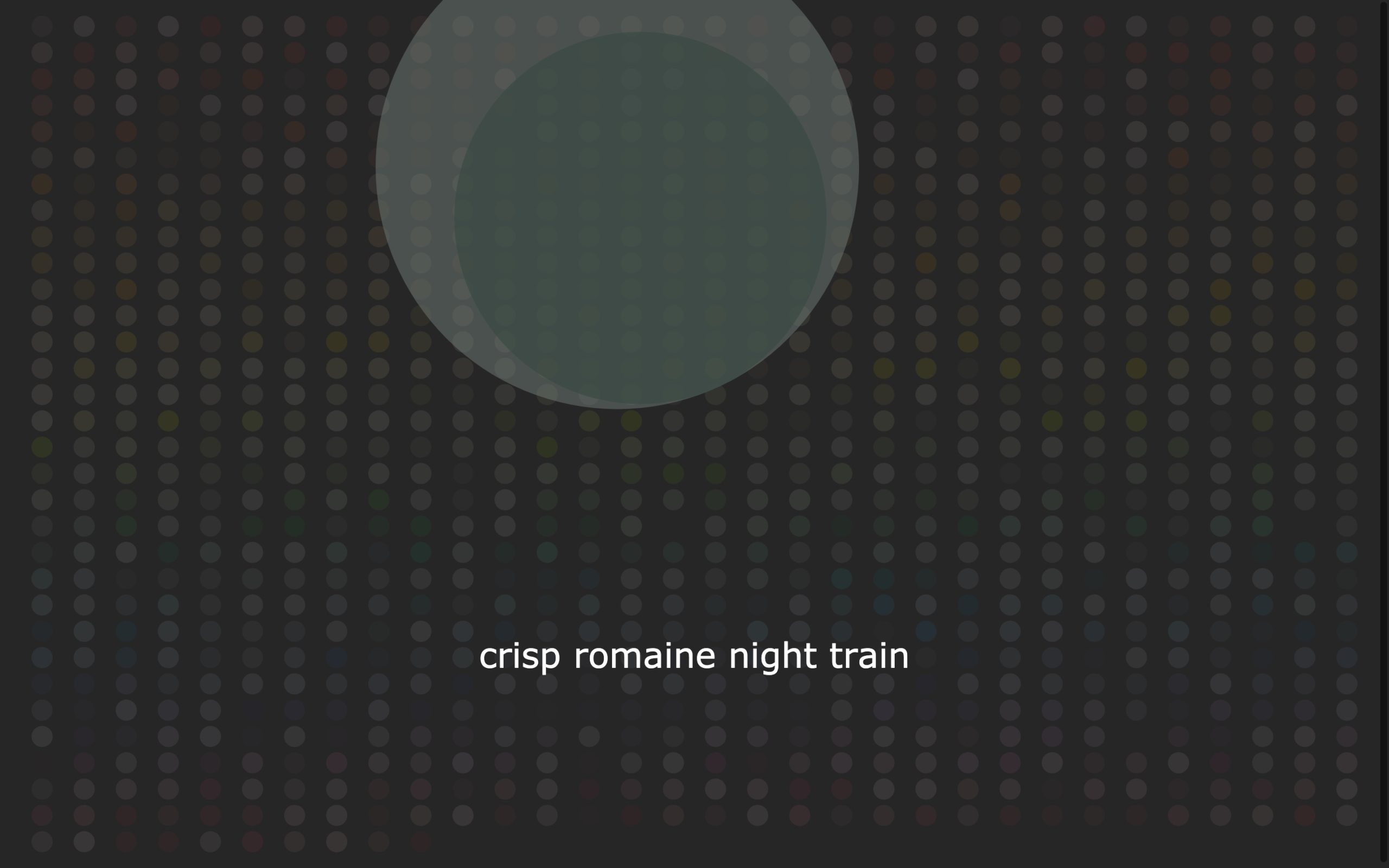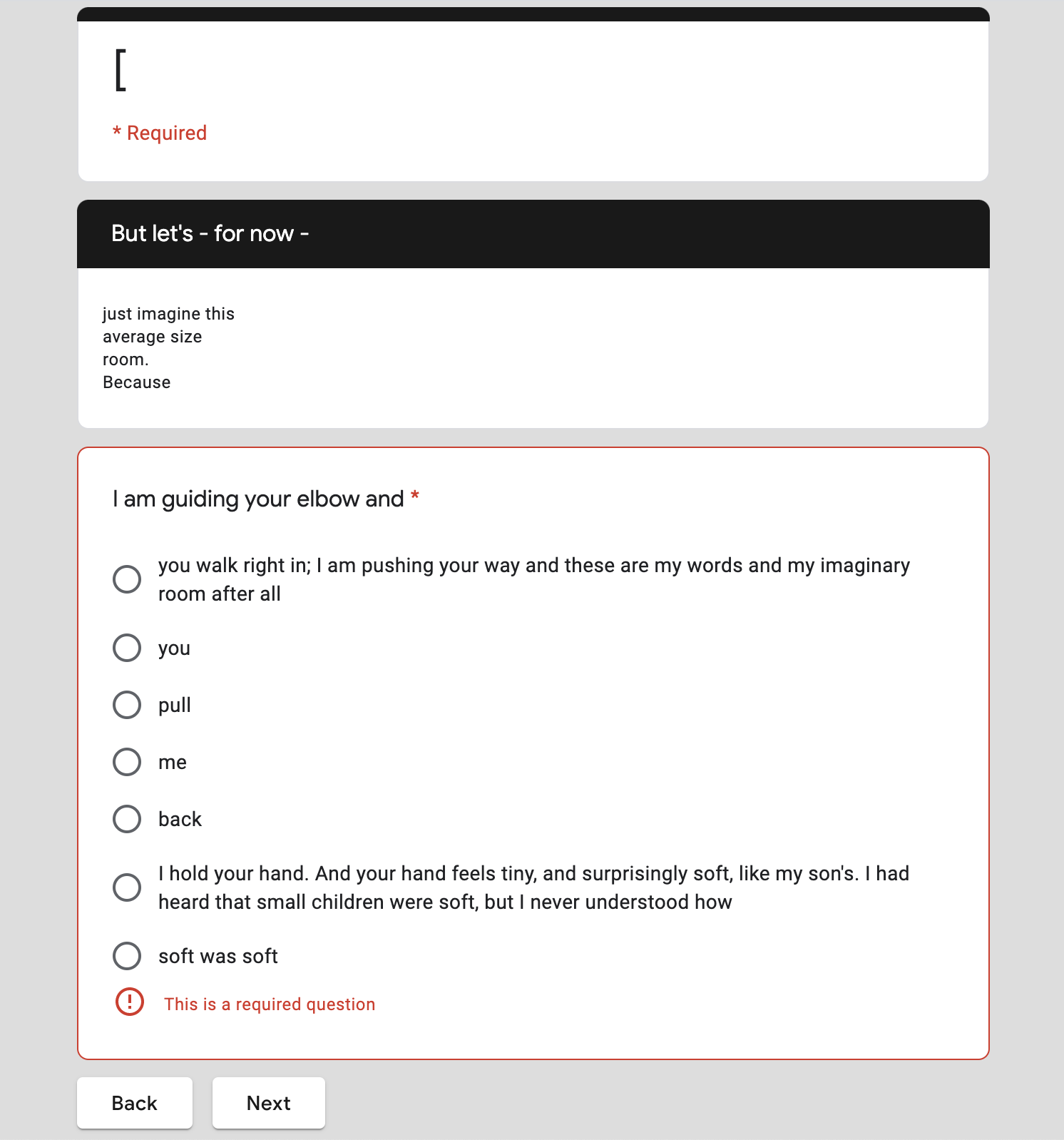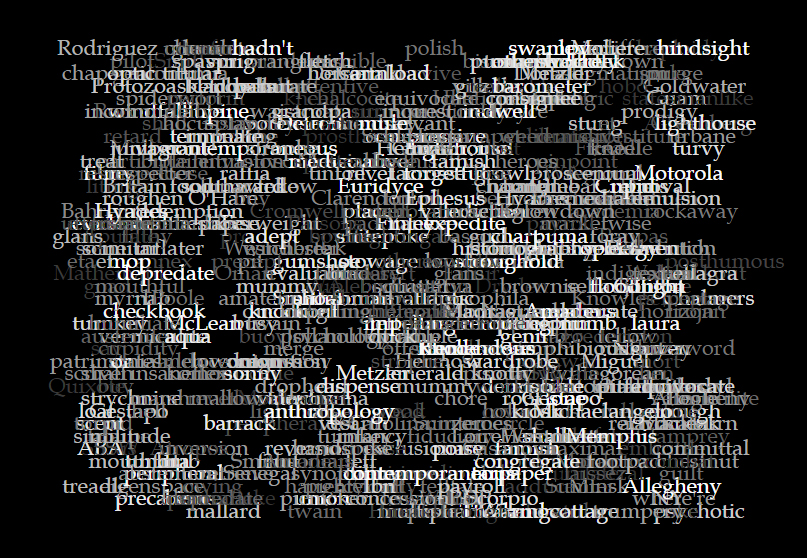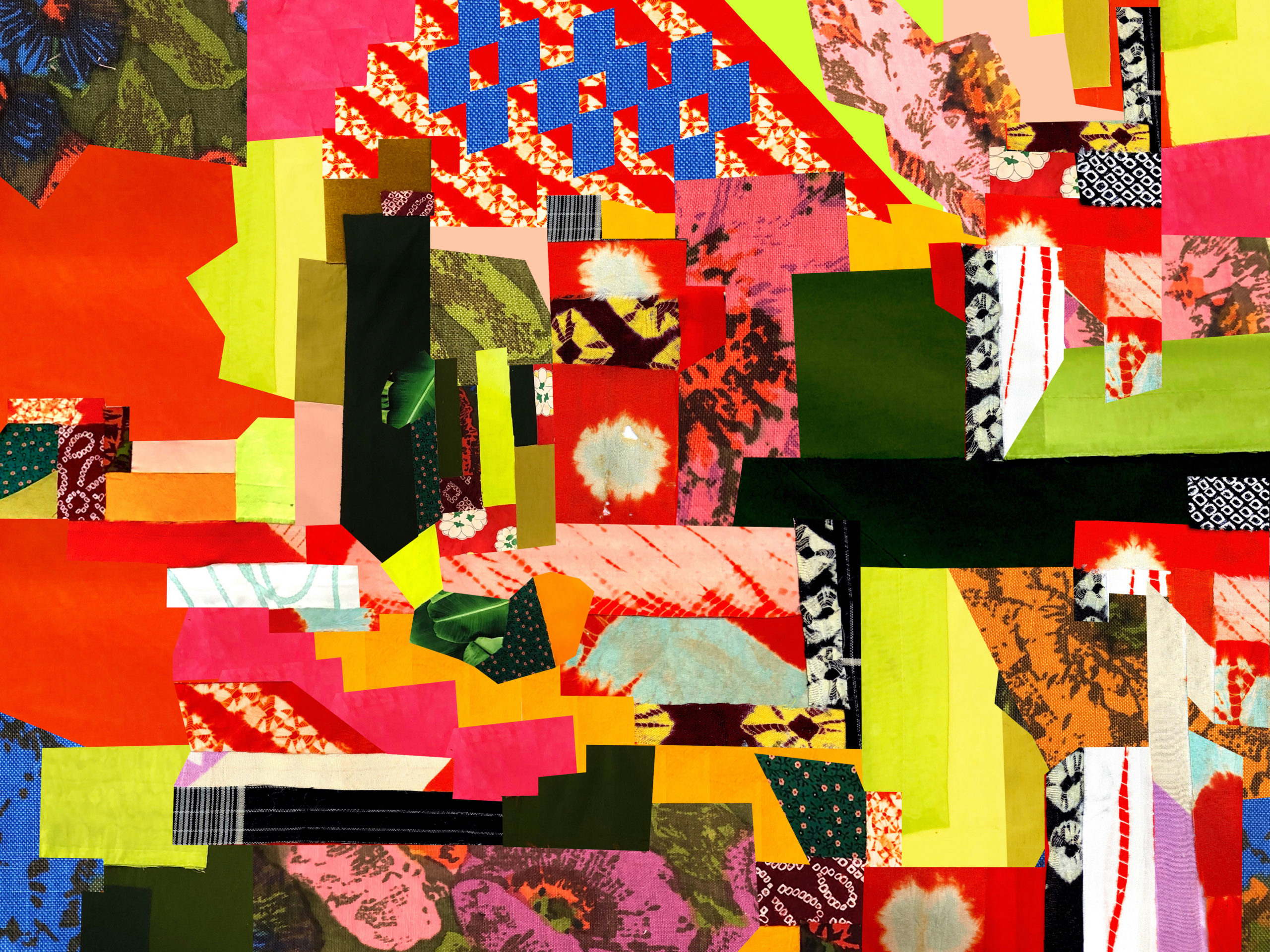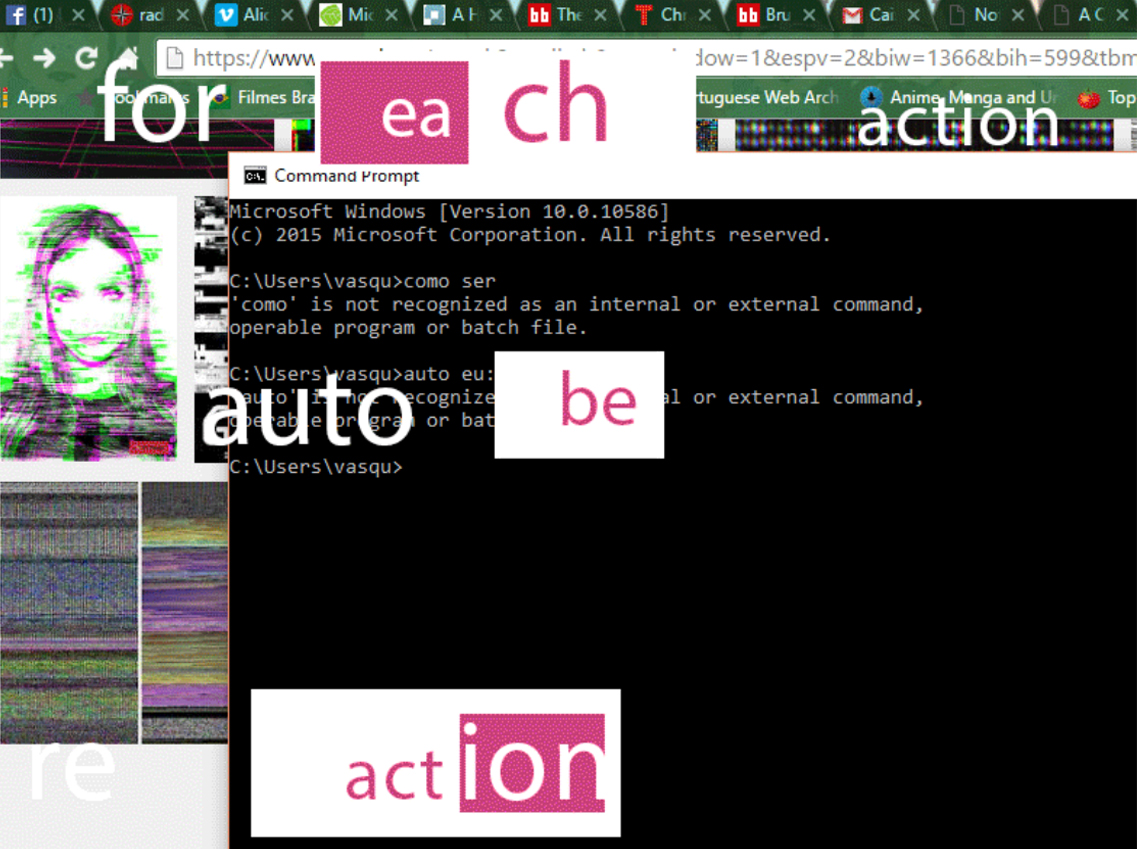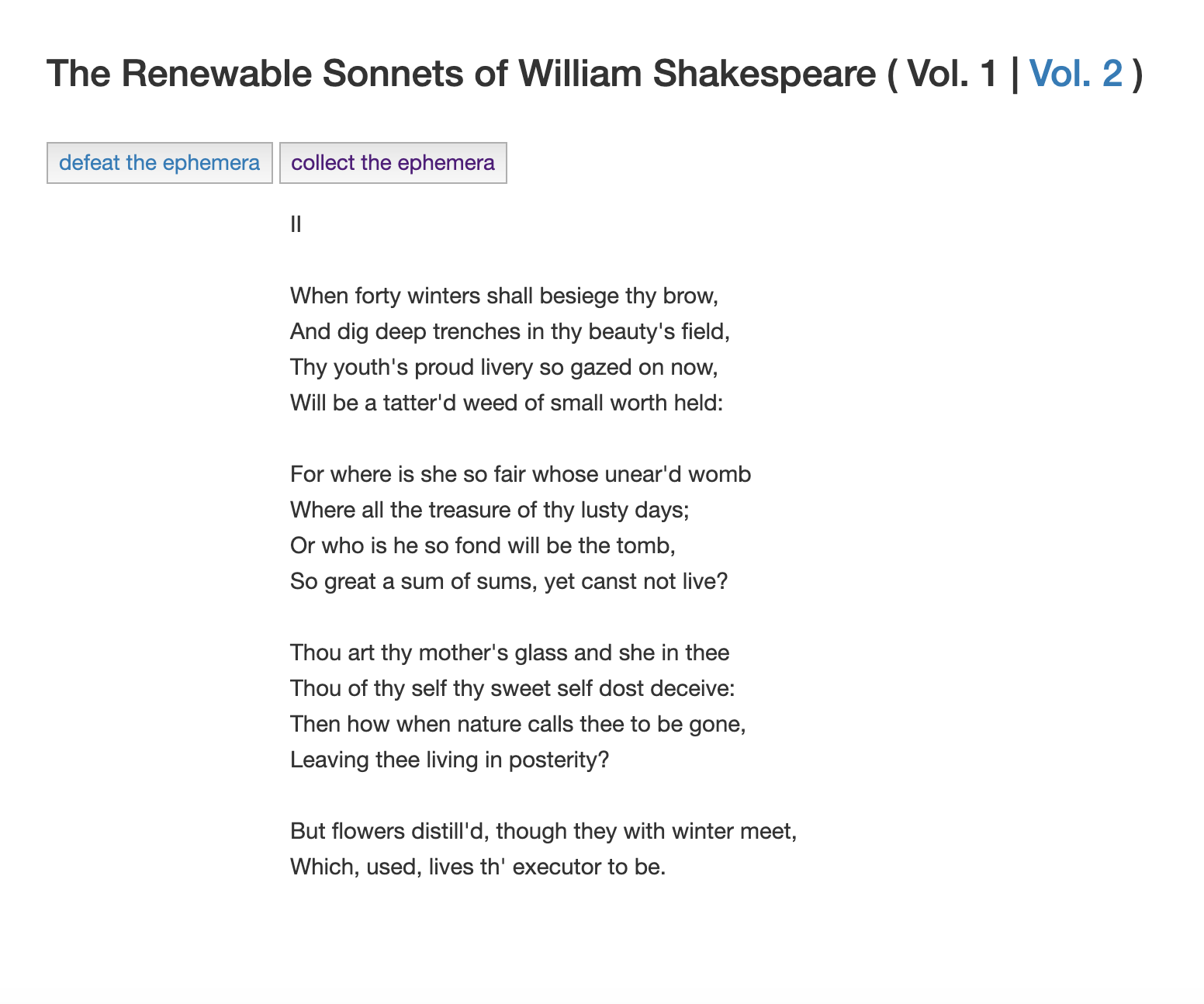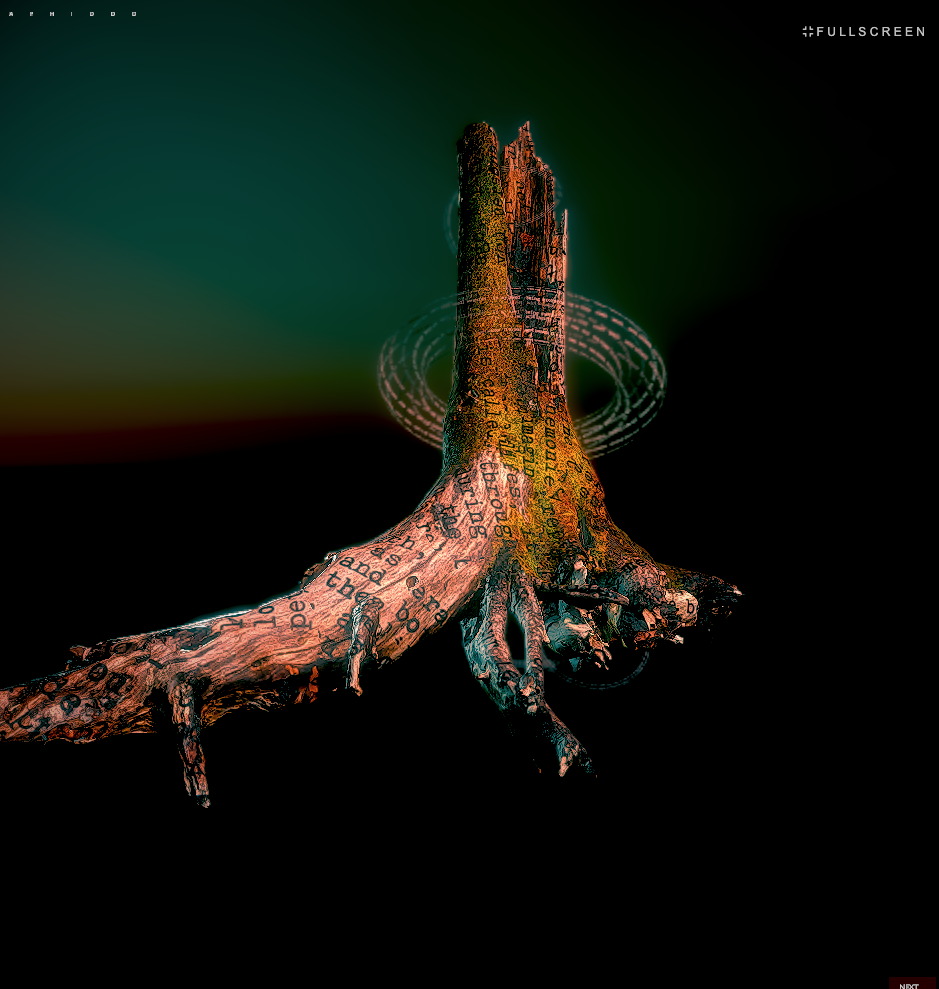corporate poetry
by Alex Saum
Earlier this year, I started corporate poetry as an exploration into how corporate language related to that other corpora that is our body.** Through a series of interactive “rooms,” this work aimed to repurpose the language of a variety of familiar online forms and platforms (Google Forms, Survey Monkey, Zoom and Qualtrics, among others) in order to domesticate the neoliberal intent of these data gathering technologies. My original hope was to bring attention to their language and our embodied reality, by making visible the digital infrastructure that is unintentionally brought into our homes whenever we participate in an online survey or take a video conferencing call.
We let them in so they can count us; at our most vulnerable,
wearing pajama bottoms.

Only a few months later, this still holds, but the new global pandemic that is forcing all of us to shelter in our homes, illuminates a new dimension of our everyday confinement. On the one hand, these poems still bend the possibilities of these technologies’ utilitarian goals by disrupting the type of data they are built to collect. On the other, they bring awareness to the user about the vicious “collecting” reality of these infrastructures as they enter, and now occupy, the domestic and personal space that poetry tends to inhabit.

In this issue, I am sharing two rooms, #1 and #2, which are based on Google Forms and Survey Monkey respectively. They are both built around the utilitarian structures we have come to expect in these survey platforms, but they both subvert the language and intent of these forms. “Room #1” is an exploration into the materiality of life by discussing motherhood as creation and death, and “Room #2” talks about the materiality of life in genocidal terms, by presenting the case of the Spanish Civil war and its aftermaths. Although it may sound counterintuitive, the destruction of natural resources and human life is directly related to the evolution of digital technologies that project a perverse sense of immaterial existence.
So does the virus,
btw. By rethinking the materiality of digital languages these two poetry rooms aim to further disjoint that relation.
Technically speaking, these are two online survey forms that require interaction from the reader. From multiple choice questions to open ended responses, the user is forced to take actions that will impact the final poetic product. Once completed, the reader has access to the overall response ratio allowing her to further explore the way her data and poetic choices were collected by voluntarily partaking in this project.
Do not worry, participants remain anonymous.
Room #1
Room #2
**This project was made possible thanks to the generous support from the Poetry and the Senses 2020 fellowship, Arts Research Center, at UC Berkeley. I am also grateful to the many and wonderful conversations I had with my brilliant e-lit undergraduate students.
